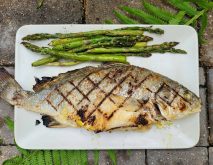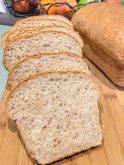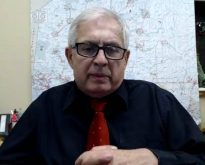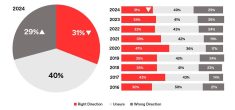Cuban markets offered a dwindling selection of food and a growing expanse of empty shelves Oct. 1 as food shortages the government warned about after hurricanes Gustav and Ike became increasingly evident.
Shortages were exacerbated in the Cuban capital when shipments from food suppliers slowed in a conflict with the government over newly imposed price controls.
In markets around Havana, customers found stretches of mostly vacant vendor stalls and limited supplies of food. A market in the Vedado district offered only papayas, a small stack of melons and a few bulbs of garlic.
Read Also

Mazergroup’s Bob Mazer dies
Mazergroup’s Bob Mazer, who helped grow his family’s company into a string of farm equipment dealerships and the main dealer for New Holland machinery in Saskatchewan and Manitoba, died July 6 from cancer.
Vendors shrugged their shoulders and said nothing else had arrived for them to sell.
A shopper named Yissel, who did not provide her full name, said the situation was the same in other markets and in her neighbourhood grocery store.
“These are difficult times because everything is so affected, so damaged (by the hurricanes),” she said. “In Minimax (grocery store), it was like I’d never seen it. I saw almost nothing, not like other times.”
Due to problems in its state-run agriculture, Cuba has long struggled to meet its food needs and imports much of what it consumes.
Hurricanes Gustav and Ike made the problem worse when they ripped through most of the country in a 10-day span starting Aug. 30, causing $5 billion in damage and destroying 30 per cent of Cuba’s agriculture.
A top agriculture official warned two weeks ago of impending food shortages that he said could last six months. But he said the government had implemented emergency measures to make sure no Cuban went hungry.
On Oct. 1, Cuba’s state-run press reported that those measures included placing limits on the amount of food to be purchased and putting caps on prices.
One newspaper reported that many food suppliers had not made their usual shipments because the government’s price controls would cause them to lose money.
The situation would be less dire, said Elsie Perez Martinez, a doctor, if the nearby U. S. had given Cuba a hand by providing aid or lifting its 46-year-old trade embargo against communist-run Cuba.
The United States has offered more than $5 million in aid, which Cuba rejected. Cuba requested that the U. S. temporarily lift the embargo so it can purchase goods for recovery, but the Bush administration refused. The U. S. has permitted food sales to Cuba since 2001 but only for cash and not on credit.


















